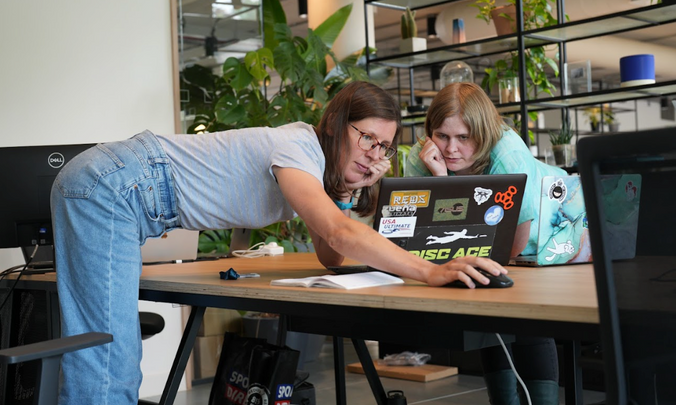
Simon's Key Achievements and Experience
- 17 Years Professional Web Developer Experience
- Worked for private companies and government organisations
- Experience from freelancing to running his own company
- Extensive experience across many web technologies
* * *
Hi, Simon, could you please tell us a bit about yourself and your professional background in tech?
I've been a web developer for 26 years. It originally started as a hobby, but at this point, I'd say I've been doing it professionally for 17 years.
In that time I've tried it all: from contracting to employment, to running a small agency, and working on my own ideas. I've worked with dozens of well-renown organisations and companies such as the NHS and Virgin Wines, which taught me a lot, and helped me finally gravitate to the flexibility of self-employment.
On a personal level, I always found it enjoyable having a direct rapport with the CEOs — I would generally fix their IT & Web problems no matter how obscure the requirement.

What coding languages do you "speak"?
I started with BASIC back in the day, and hacked around with Linux. I then moved on to C/C++ which then led me to taking an interest in OpenGL (thanks to Nehe's tutorials which were the gold standard back then). I then discovered the internet as it began to emerge, and so my journey with HTML/CSS/JS/PHP/SQL began. Over the years, I moved on, so now if I want to use PHP I'll use the excellent Laravel framework and Statamic CMS ... and if I want to use Node type stuff, I think NextJS has won me over compared to Angular or Vue.
Why did you decide to become a mentor at Tech Ed?
I think it's a very personal decision — when I was starting out, I remember having minimal to no support, and I would like to help change that for newer generations of developers.
In essence, I'm really looking forward to helping my future mentees achieve their full potential. It can be anything from helping them build their own products and start-ups to guiding them in their careers.
I believe if I had a decent mentor when I was building one of the first booking systems on the internet, I would probably be retired on a beach by now [chuckles].
We've touched on the technical side of things, what would you say about the emotional and the mental health component of it all?
I know, first-hand, how many developers suffer from imposter syndrome. There's always someone way better than you especially if they focus solely on a specific technical skill, which is both good and bad — good in a sense of endless opportunities for learning new things and getting inspired, but on the other side, it is very easy to start comparing yourself to everyone at once and unconsciously going down the rabbit hole of thinking you'll never be good enough in the process...
All-in-all we're here to support you — technically and emotionally — because in many cases your emotions will dictate the success in your career... Also, I'm quite a demanding mentor, and I will most definitely tell you when you are being lazy, because there's no time to waste in life! [smiles cheekily]
Any last words of advice?
Personally, I've always liked learning multiple things. I'm here to give you the support and tools to find the correct answer (basically Daddy Google).
The best piece of advice I can give is to take the extra time you've got to keep on learning. Web development changes rapidly, and it's so important to stay on top of that change else you'll end up a dinosaur, but with that being said, it's also vital to focus on a niche.
There's too much to learn, and too little time to learn it all. Find the part of the development process that you enjoy the most and keep on going!
About the Author
James has 8 years with Fortune 200 US firm ITW, experience of managing projects in China, USA, and throughout Europe. James has worked with companies such as Tesco, Vauxhall, ITW, Serco, McDonalds. James has experience in supporting start-up and scale up companies such as Readingmate, Gorilla Juice and Harvest London. James completed his MBA at the University of East Anglia in 2018.
